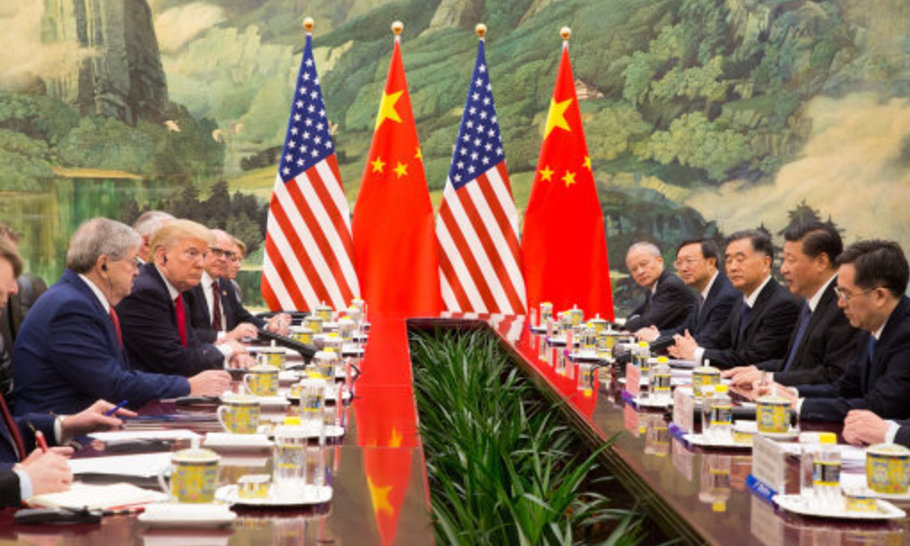Is it worth being the "biggest" country in the world?

(Credit Image: © Shealah D. Craighead/Planet Pix via ZUMA Wire)
Since Donald Trump became president in November 2016, American angst about China has been escalating. Disquiet in the US initially focused on the bilateral trade deficit and the associated belief that China pursued unfair trade competition, both in terms of promoting exports and limiting imports. In the past 18 months, on top of the persisting disputes about trade and occasional flair ups about currency issues, the battle over leadership of global technology and security issues has escalated dramatically. And of course, courtesy of Covid-19, relations appear to have deteriorated further, with the US going as far as restricting its funding of the WHO, accusing it of being too close to Beijing. This comes with the President’s uniquely blunt manner and his habit of describing the disease as “Wuhan flu”.
The question is whether the US might take a similarly confrontational attitude towards any foreign power that threatens to become larger than the US. It might not be an issue for the next decade or two, as there would appear to be very few contenders other than China — India in 25-30 years, perhaps? It is something worthy of thought.
I lived in New York twice, originally in the mid- to late-80s, and then again, briefly in the mid-90’s. For much of that era, it was assumed in financial circles that Japan could overtake the US, and from 1985 and the Plaza Accord through much of the next 10 years, there were various initiatives that DC threw at Japan, criticising their persistent trade surpluses, unfair trade practices, currency manipulation, lack of access to Japanese financial markets, and so on. Indeed, it was very similar to much of what has happened towards Beijing in recent years.
Of course, we look back and see that, due to Japan’s demographic realities and its failure to reform its domestic economy, the underlying growth trend of the Japanese economy slowed dramatically, and the Japanese bubble burst.
And of course, it may well be that the same thing will happen now with China. It certainly has an ageing population, and as a result its underlying growth potential is in decline. But unlike Japan, it has not yet reached developed country status, and there is presumably still lots of potential for those hundreds of millions of Chinese citizens to join those in the most advanced urban areas of China, and reach high income status.
Because of China’s ageing demographics, the inefficiencies of many of its state owned industries might encourage some US policymakers to think that the 80’s Japan strategy might work once more. Ensuring that China never becomes as big as the US would protect the dominant role of the Dollar, would shore up US supremacy in global institutions, and possibly, as a bonus (in the eyes of some), undermine the single party state in China.
The question is, would the US ever do the same to India, perhaps in 25-30 years’ time years? And what about a “United States of Europe”, if the EU ever undertook the steps to turn itself into such an entity?
Which brings us to two questions. First, what is the appeal of being the biggest country in the world? And second, given that demographics are one of the two key drivers in long term growth (the other being productivity), does this mean the US will confront any large populated country that threatens its supremacy?
As for the appeal of being the biggest, it has certainly given the US great advantages, including the ability to run seemingly persistent trade deficits. This allows US consumers to enjoy the best and often cheapest goods from anywhere in the world. But there are also costs, such as the defence shield that the current President seems to resent so much, and the need to shoulder the deficits and the debt that go with this US external position.
Being the biggest doesn’t necessarily make your citizens better off. Surely this is what really matters to your voters, and if other countries being bigger than you helps your own citizens become even wealthier, then that should be a more sensible goal.





